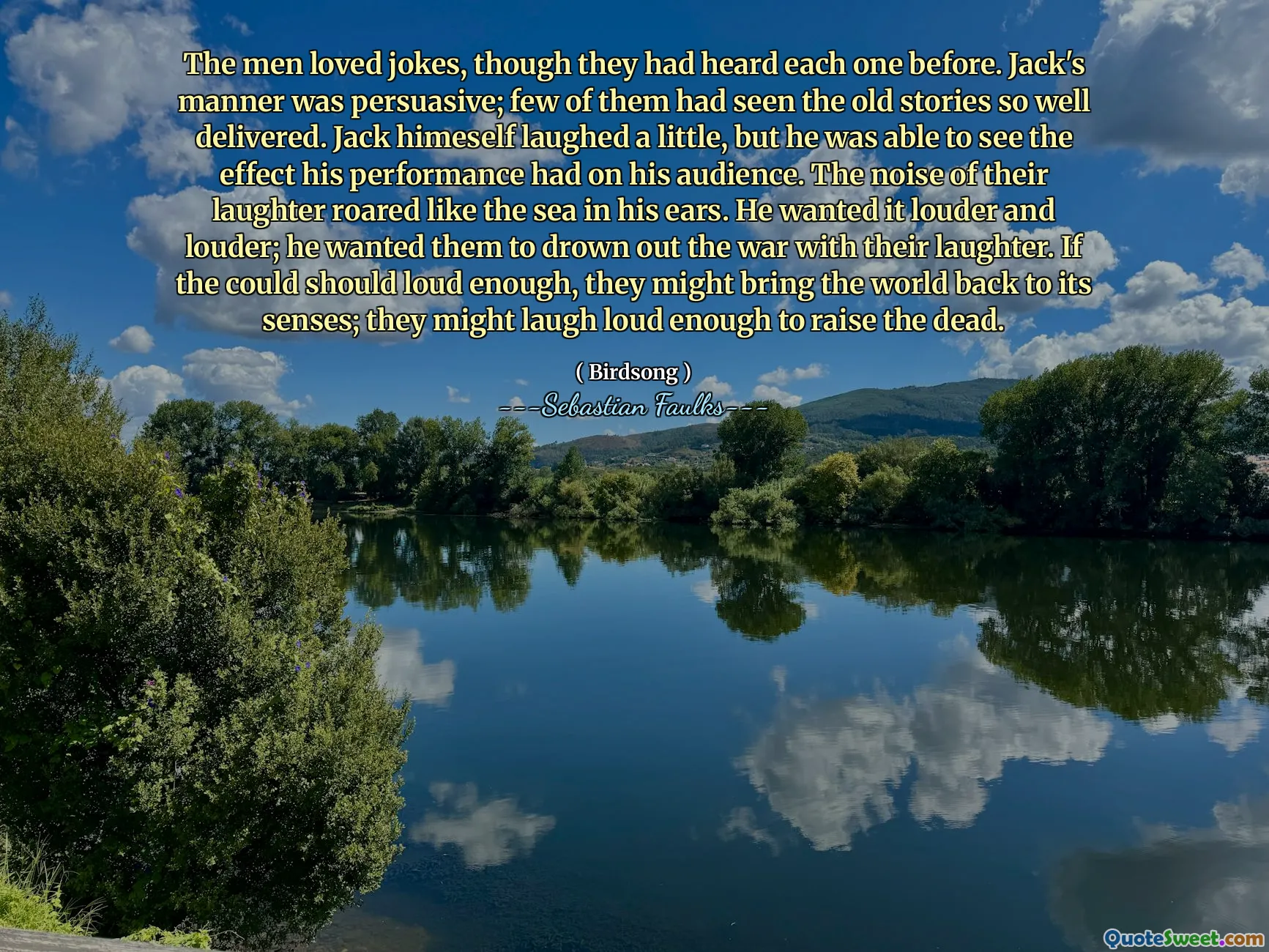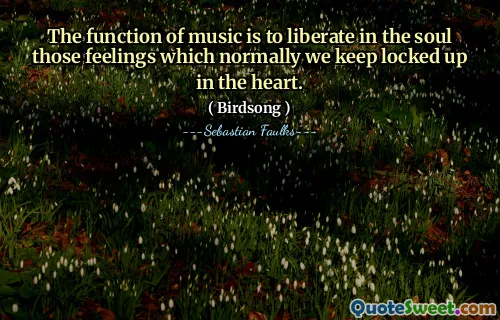
The men loved jokes, though they had heard each one before. Jack's manner was persuasive; few of them had seen the old stories so well delivered. Jack himeself laughed a little, but he was able to see the effect his performance had on his audience. The noise of their laughter roared like the sea in his ears. He wanted it louder and louder; he wanted them to drown out the war with their laughter. If the could should loud enough, they might bring the world back to its senses; they might laugh loud enough to raise the dead.
In the narrative, Jack captivates his audience with humor, sharing jokes they've all heard before, yet his delivery makes them feel fresh and engaging. His persuasive manner transforms the room, and he revels in the collective joy he creates. The laughter he evokes serves as a powerful counterpoint to the harsh realities of war surrounding them.
Jack's desire for laughter amplifies as he wishes for it to drown out the grimness of their circumstances. He imagines that if their laughter could reach a deafening volume, it might even awaken the dead and restore sanity to a troubled world, highlighting the significance of joy as a means of coping with despair.











